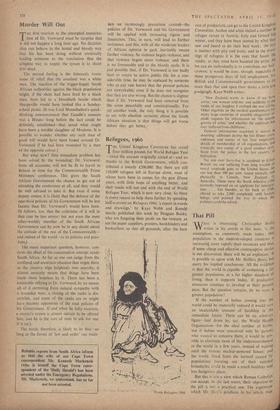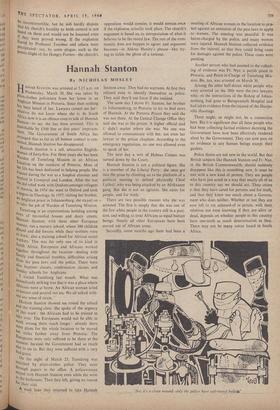That Pill
'WHAT is interesting.' Christopher Ho VV writes in his article in .this. issue. 'is I assumption, so commonly made today. ti population in the Underdeveloped countries increasing more rapidlY,than resources and th if some cheap and effective contraceptive des1 is not discovered, there will be an explosion: is possible to agree with Mr. Hollis's thesis, t query his implied conclusions. All the eviden is that the world is capable of containing a greater population, at a far higher standard living, than it supports today, if producti resources continue to develop at their prese .pace. But the question remains, do we wan/ greater population?
!is he at it, Ce It ilt cc ar of ye
if the number of babies coming into the world could be materially reduced it would save an incalculable amount of hardship in the immediate future. There can he no arbitrarY figure--laid down by, say, the World Health Organisation—for the ideal number of birth': but if babies were conceived only by parer Is who wanted to conceive them, it would be pcs' sible to eliminate most of the undernourishment in the world in a few years, instead of waiting until the remote nuclear-powered future; and the world, freed from the turmoil caused bY populations bursting out of their national boundaries, could be made a much healthier an d less dangerous place.
But this is not a view which Roman Catholi can accept. In the last resort, their objection the pill is not a practical one. The argunico which Mr. Ho I's produces in his article nu
fit
3
be incontrovertible, but he will hardly dispute that his church's hostility to birth control is not based on them and would not be lessened even if they were proved wrong. If the explosion feared by Professor Toynbee and others were Precipitated—say, by some plague, such as the Potato blight of the Hungry Forties—the church's opposition would remain; it would remain even if the explosion actually took place. The church's argument is based on its intrepretation of what it believes to be the moral law. The rest of the com- munity does not happen to agree; and argument becomes—in Aldous Huxley's phrase—like try- ing to tickle the ghost of a tortoise.



































 Previous page
Previous page